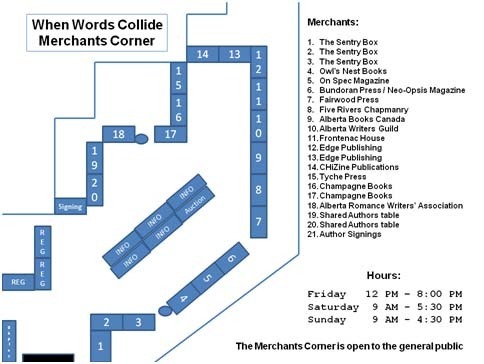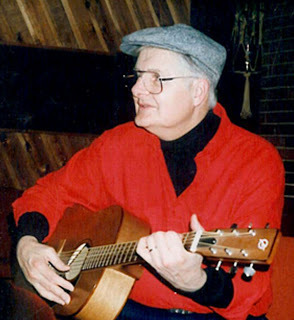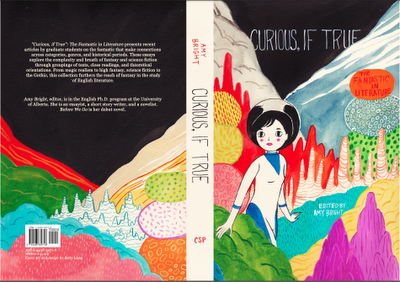Lorina Stephens's Blog, page 58
August 10, 2012
Review: Rasputin's Bastards

Rasputin's Bastards by David Nickle
My rating: 3 of 5 stars
There is no disputing David Nickle's ability as a strong story-teller with an aggressive style. If you're looking for subtle and lyrical, Rasputin's Bastard's is not it. If you're looking for a Clancy-ish SF, you've found your writer.
Set in the confusion of post-Cold War Era, Nickle's story unfolds around a large cast of characters, all working toward the same end, to either prevent, or create, world domination not through force of arms, but through aggression of a far more insidious and devastating means, that of mind control.
In the utopia of the villains of this story, humans would exist as vehicles for the consciousness of their overlords. In the utopia of the heroes, those with the ability to dream-walk others would simply be able to exist in harmony, without fear of persecution or harm.
The story itself, although not particularly new, is a good one, and Nickle tells it in a style very much mirroring the implacable reasoning of the Cold War mentality.
And this is where we get into personal taste in this review, something I'm always loathe to do, but usually succumb, because so much of the interpretation of art is subjective.
Although I understand Nickle's artistic paradigm, to mirror tone and word choice to the atmosphere one attempts to create in a story, in this case I think he fell just a tad short of what could have been a brilliant novel. The voice, or the tone if you will, is so married to the impersonal insouciance of the Cold War, that much of environmental detail, of the minutia that draws in a reader and invests them emotionally, was missing. In the end the reader, like the super-beings that inhabit this story, wander through a metaphor which is described, but never realized. It is a dream, and therefore without substance. And therefore without emotional impact. And so without reader investment.
The cast of characters in the novel is enormous, and while it's perfectly acceptable to have a huge cast (I am often guilty of this myself), of necessity for we plebian brains who are reading, many of those characters could have been relegated to walk-on roles only. I believe that part of my problem with being unable to connect to the narrative is that I'd entered a convention and couldn't get to know anyone.
Is Rasputin's Bastard's worth the investment of your time to read? Absolutely. But will it be one that leaves you transported and translated? Not likely. Still and all, a good novel to embrace on one of summer's dog days, or winter's solitudes.
View all my reviews
Published on August 10, 2012 04:15
August 8, 2012
A 5-star review for Shadow Song
Well colour me tickled silly over this 5-star review from a LibraryThing reader.
 Available at Amazon
Available at Amazon
 This review was written for LibraryThing Early Reviewers.I received Shadow Song by Lorina Stephens in the Early reviewers giveaway, and am thoroughly pleased I did. Previously having not read anything by Lorina Stephens work, so for me it was an venture into a new authors work.
This review was written for LibraryThing Early Reviewers.I received Shadow Song by Lorina Stephens in the Early reviewers giveaway, and am thoroughly pleased I did. Previously having not read anything by Lorina Stephens work, so for me it was an venture into a new authors work.
The book is set in the 1830’s in Canada, and centres on a young orphaned English girl who is shipped to Canada upon the death of her Parents to her only living relative – her uncle. The story runs alongside a true tragedy that occurred in the village of Hornings Mills, Ontario, Canada, and follows the lives of the young orphan and Shadow Song an Native Indian Shaman and medicine man.
This book offers so much to the reader, with its unique blend of tragedy, love, coming of age, folk lore and history that it should appeal to most. The story flows smoothly with the author treating us to beautifully descriptions of scenery, fully developed characters and enough action to keep you turning the pages. I enjoyed the insight to the Native culture with the stories, beliefs and way of living woven with ease into the story.
The only critic I can offer is the “blurb” on the book does not give it justice. I wonderful novel, from an author whose work I will be purchasing in the future. ( )
)
 |
| 
 flag Silverlily26 | Aug 8, 2012 |
flag Silverlily26 | Aug 8, 2012 |


 Available at Amazon
Available at Amazon
 This review was written for LibraryThing Early Reviewers.I received Shadow Song by Lorina Stephens in the Early reviewers giveaway, and am thoroughly pleased I did. Previously having not read anything by Lorina Stephens work, so for me it was an venture into a new authors work.
This review was written for LibraryThing Early Reviewers.I received Shadow Song by Lorina Stephens in the Early reviewers giveaway, and am thoroughly pleased I did. Previously having not read anything by Lorina Stephens work, so for me it was an venture into a new authors work.The book is set in the 1830’s in Canada, and centres on a young orphaned English girl who is shipped to Canada upon the death of her Parents to her only living relative – her uncle. The story runs alongside a true tragedy that occurred in the village of Hornings Mills, Ontario, Canada, and follows the lives of the young orphan and Shadow Song an Native Indian Shaman and medicine man.
This book offers so much to the reader, with its unique blend of tragedy, love, coming of age, folk lore and history that it should appeal to most. The story flows smoothly with the author treating us to beautifully descriptions of scenery, fully developed characters and enough action to keep you turning the pages. I enjoyed the insight to the Native culture with the stories, beliefs and way of living woven with ease into the story.
The only critic I can offer is the “blurb” on the book does not give it justice. I wonderful novel, from an author whose work I will be purchasing in the future. (
 )
)
 |
| 
 flag Silverlily26 | Aug 8, 2012 |
flag Silverlily26 | Aug 8, 2012 |

Published on August 08, 2012 13:51
August 6, 2012
Goodreads 4-star review for Stonehouse Cooks
Found this review posted today on Goodreads for my cookbook, Stonehouse Cooks.

 Stonehouse Cooks
Stonehouse Cooks
byLorina Stephens (Goodreads Author)
 rainyfeathers's review Aug 06, 12
rainyfeathers's review Aug 06, 12
 bookshelves: own, first-read
bookshelves: own, first-read
Read from February 03 to August 06, 2012
First, of all I received this book as part of Goodread's first reads giveaway.
Secondly, it did take me awhile to read this book because I wanted to try out a few recipes. I liked the style of writing. I felt that the author was talking to a friend about food rather than just reading a dry cookbook.
Some of the recipes are not for me. I am a picky eater but making your own food means you can take out the things you don't like.
The food is more fancy than what I am use to making. Of course I'm new to cooking and still burn cookies.
I'll update this review after I have tried more recipes. But I'm glad I got this cookbook.

 Stonehouse Cooks
Stonehouse CooksbyLorina Stephens (Goodreads Author)
 rainyfeathers's review Aug 06, 12
rainyfeathers's review Aug 06, 12 bookshelves: own, first-read
bookshelves: own, first-readRead from February 03 to August 06, 2012
First, of all I received this book as part of Goodread's first reads giveaway.
Secondly, it did take me awhile to read this book because I wanted to try out a few recipes. I liked the style of writing. I felt that the author was talking to a friend about food rather than just reading a dry cookbook.
Some of the recipes are not for me. I am a picky eater but making your own food means you can take out the things you don't like.
The food is more fancy than what I am use to making. Of course I'm new to cooking and still burn cookies.
I'll update this review after I have tried more recipes. But I'm glad I got this cookbook.
Published on August 06, 2012 11:31
July 31, 2012
Michell Plested Signed for Sequel
Tomorrow marks the release of Michell Plested's debut YA novel, Mik Murdoch: Boy Superhero. And while advance copies of this enchanting novel have occurred, we've reached an accord with Mike for the sequel, Mik Murdoch: The Power Within.
The second novel will continue Mik's search for super powers, and is expected to be completed by the close of 2013, with a projected release some time in 2014.

The second novel will continue Mik's search for super powers, and is expected to be completed by the close of 2013, with a projected release some time in 2014.

Published on July 31, 2012 08:45
July 19, 2012
Five Rivers at When Words Collide
We're making an appearance this year at Calgary's, When Words Collide. Both Robert Runte and Barb Geiger from our editorial team will be there, along with several of our authors who will be engaged in launches and book signings: Susan Forest, H.A. Hargreaves, Ann Marston, Michell Plested, and J.W. Schnarr.
Drop by our merchant table, check out our books, launches and signings, even take advantage of some of the great savings to be had, and catch up with some of the panels and discussions in which our crew will be involved.



Drop by our merchant table, check out our books, launches and signings, even take advantage of some of the great savings to be had, and catch up with some of the panels and discussions in which our crew will be involved.


Published on July 19, 2012 08:29
July 9, 2012
Five for Five
The virtual ink has dried on contracts between Five Rivers and Iambik to publish audiobooks of five of Five Rivers' novels: Downshift, by Matt Hughes; Kingmaker's Sword, by Ann Marston; Mik Murdoch: Boy Superhero, by Michell Plested, and From Mountains of Ice and Shadow Song, by Lorina Stephens.
Iambik are now putting together voice auditions for all five novels. We'll keep you updated when the audiobooks are slated for release.
[image error]
ISBN 9781927400074
eISBN 9781927400081
[image error]
ISBN 9781927400166
eISBN 9781927400173
[image error]
ISBN 9781927400111
eISBN 9781927400128
[image error]
ISBN 9780973927856
eISBN 9780986563027
[image error]
ISBN 9780973927818
eISBN 9780986563041


Iambik are now putting together voice auditions for all five novels. We'll keep you updated when the audiobooks are slated for release.
[image error]
ISBN 9781927400074
eISBN 9781927400081
[image error]
ISBN 9781927400166
eISBN 9781927400173
[image error]
ISBN 9781927400111
eISBN 9781927400128
[image error]
ISBN 9780973927856
eISBN 9780986563027
[image error]
ISBN 9780973927818
eISBN 9780986563041

Published on July 09, 2012 12:18
July 7, 2012
Iambik Makes me an Offer
Tickled silly to be able to share the news that Iambik Audiobooks will be releasing audiobooks of my two novels, From Mountains of Ice and Shadow Song.
I'll be receiving voice auditions for From Mountains of Ice some time in the next few weeks from Gesine Kernchen at Iambik, and shortly thereafter for Shadow Song. Not sure how long production will take for either of the novels, but you can be sure I'll let you know.
Now, if someone would make me a serious offer for the movie rights....
[image error] Shadow Song
ISBN 9780973927818 $23.99
eISBN 9780986563041 $4.99
[image error] From Mountains of Ice
ISBN 9780973927856 $23.99
eISBN 9780986563027 $4.99

I'll be receiving voice auditions for From Mountains of Ice some time in the next few weeks from Gesine Kernchen at Iambik, and shortly thereafter for Shadow Song. Not sure how long production will take for either of the novels, but you can be sure I'll let you know.
Now, if someone would make me a serious offer for the movie rights....
[image error] Shadow Song
ISBN 9780973927818 $23.99
eISBN 9780986563041 $4.99
[image error] From Mountains of Ice
ISBN 9780973927856 $23.99
eISBN 9780986563027 $4.99
Published on July 07, 2012 12:38
July 6, 2012
Google+ Hangout with Susan Forest, author of Immunity to Strange Tales
As part of Five Rivers' continuing series of Google+ Hangouts, Lorina Stephens interviewed Immunity to Strange Tales author, Susan Forest.



Published on July 06, 2012 11:12
July 4, 2012
Interview with H.A. Hargreaves
I recently had the pleasure of interviewing H.A. Hargreaves, author of North by 2000+ and Growing Up Bronx. Despite his love of real paper and the sound of a pen scratching, of sending and receiving mail through the postal system, he was kind enough to venture into the perilous waters of rapid communication and answer the questions I put to him. I think you will find a fascinating mind revealed here, one worth attending and noting.

H.A. Hargreaves
Stephens: The
stories in your speculative fiction collection, North by 2000+, are very human
stories, very character-driven stories, rather than stories about technology or
science. Was it a conscious intent upon your part to illuminate how it is
humans are affected by technology and social decisions, or was it something
else?
Hargreaves: I suppose that I finally began outgrowing my fascination with miraculous
things that entered the world in my adolescent years, the marvellous changes
they promised and many actually produced, when I glimpsed the uses they would
be diverted to. It would be easy, but far from completely true, to claim
a great revelation when the tri-motored planes lumbering over our home, to land
at La Guardia Field, began changing.
Granted,
the newer, faster, sleek planes no longer had windows behind which people
could wave at us earthbound innocents. But I, ten years old and
spellbound, only wished I could ride in one. Later, when fleets of them
flew overhead, ferried empty to England, I was now a mid-teen volunteer in the
Civil Air Patrol. I still intended to become an aeronautical
engineer. But when our commandant, who was periodically absent from our
training sessions, returned one night with his right arm in a cast, and various
cuts on his face, a blindfold was lifted. We knew then to what uses those
many planes going to England were put, and who intercepted them off the coast
of Ireland. At Armonk Airport, though under-aged, we learned to fly in
small A5 reconnaissance planes, sent home from the war with visible damage and
rough repairs that held our attention. Those of us with wakened but
harnessed imagination knew their story.
It was only as we were suddenly engulfed by the stories emerging from a
distant war, more and more efficient but less and less deftly removed behind a
thin curtain, the mechanical inhumanity of such "progress" was
revealed. Was I merely 15? Oh yes; but some individuals knew only a
slow lifting of the curtain, if any, much later. I look back and feel
blessed that my "blooding" was pretty rapid, accompanied by the
unexpected death of my mother. Our doctor was blameless: technology
would not yet provide a look inside that heart weakened from birth and then
attacked by a lethal staff infection. I could not blind myself to the
limitations of medical technology, but achieved a terribly painful
realisation that, with the intense concentration of medical science upon
war-induced injury, a "minor" civilian puzzle could be set
aside. War or no war, I felt then (and still do on unguarded occasions) a
great sadness at the apparent and continual misdirection of technology, or
of those who control it. Undoubtedly, this has always influenced my
creative imagination.
Stephens: Of all the stories in North, the one, for me, with the most profound message and
impact is Cainn, which deals with juvenile criminal rehabilitation through a
system of mentoring and life-long commitment. Tell us about the genesis
of that story, and why you felt it needed to be written.
Hargreaves: Stories
have seldom come to me full-blown. They grew slowly in my mind while I
tended immediate teaching requirements. Cainn was no exception though the
two puzzles contained in it stood stark at once.
I
was sitting in the choir one Sunday, listening to a priest who ran a
school-institute to rehabilitate youth already verging on the road to criminal
behaviour. His method seemed radical but was clearly successful in most
cases. This seemed to me distantly related to the story of Cain, the
proper Old Testament reading of the day, conveniently read by the priest
himself. Surprisingly, he continued past the reading`s end , known and
expected by most worshipers. (In that, God places a curse upon Cain,
making any of his farming unsuccessful, but provides him protection from murder
as he wanders through society. Cain understandably sees this denial as
too much to bear. The story apparently ends.) The priest, however,
then skipped chapters to Genesis 4, verse 17, in which we`re told Cain took a bride,
had a son, and builded a city. This stunned me: I'd never
never consciously noted this last, undeveloped statement. I sat there
contemplating a great gap between young Cain the fratricide and Cain the city
maker. What was the story of his seeming impossible metamorphosis?
Over the next two teaching years, I imagined fragments of a society in which he
might be salvaged and 'remoulded' around unsuspected characteristics, to allow
the growth of a truly humanistic man.
Why
did I feel I had to write it? In my full career I tried to 'mentor' a
gang of 5,000 students. There were more than a few who were heading
for dark streets. But still they were intelligent people. I tried
subtly to give them an alternate view. Most would have had a great deal
to give. It was occasionally though a sad drenching in the
pool of failure. Another reason I dropped out of Theology.
And my gifted students 'demanded' my best intentions.
Stephens: I
understand from Robert Runte that the stories in this collection were generally
written during holiday time every year. Yet there is a stunning level of
professionalism and polish to these stories. Surely there must have been
time in the day to day to return to these stories to bring them to this level,
or were you graced with the ability to have them fall, perfect and complete
from brain to page.
Hargreaves: For
many years, in late summer, something would catch my eye, emerge from a
conversation, beckon out of casual reading, to suggest an interesting
story. It would stay at the back of my mind, surfacing at times, or I'd
acknowledge it with a half-formed connection to other fragments. Part way
through the academic year some pieces would come together, suggesting a
worthwhile plot, a character worth developing either into that plot, or worthy
of a newly-conceived one. Then would commence what others would call
professional assessment, together with building situation, plausibility:
the mental sweat and ruthless detachment to turf out anything that didn't
merely fit, but in some way contribute to plot, action, character compulsion,
any or all of these.
I
stress here the sharp, conscious application of purpose throughout.
Sudden enticing revelations must be attuned to the developing whole or be set
aside (not necessarily discarded). As strictly as possible, everything
must fit the whole.
Yet
all this did not really come together till the rigorous demands of teaching
were fulfilled for another year. This is not the place to examine those
totally self-absorbing demands. Let it suffice to say both teaching and
professional writing deserve to get full attention and study.
Stephens: Your
other collection of short stories, Growing Up Bronx , is a radical shift in
genre, from speculative fiction to memoir. Why write that
collection? What was the impetus behind those stories, and over what
length of time were they created?
Hargreaves: I
must answer this noting first here, as elsewhere, that I`d given up writing
speculative (science) fiction by the early nineties. The subgenre had by
then seemingly exhausted its sources and venues. The number of good
writers had shrunk, and a host of readers had turned to the upstart
fantasy. As I retired from teaching I`d turned, as old fogeys do, to
retrospection of my previous overfull life. With genuine embarrassment I
began to realise that a number of people had influenced me strongly while I was
growing up. They had, in effect, often filled the place of my extremely
hard-working father, and my short-lived mother. Coupled with an acknowledged,
continuing strong pressure to write, I felt I owed a considerable debt to
them. The best way to repay that was to preserve them and their clear
contribution to my growth into manhood in a memoir.
Stephens: Certainly
in reading both collections a person can see how it is life-influences
influenced subject matter for fiction. Was this obvious to you as a
writer, or was it something unconscious?
Hargreaves: I
must be very firm about this. Of the 'fiction' in this
collection, what there is of it is to prevent hard feelings, if any,
on the part of people close to those I've delineated. The work was spread
over a number of years, but was both difficult and gratifying. I had
to provide an accurate picture of their influence, as I've already said, but
tried to avoid any misunderstanding among those still alive who loved
them. Curiously, when I couldn't find a publisher it was a real relief to
store the manuscript under my desk. I had fears that it might be
seen as 'an advertisement for myself .' Rather, I meant it
from its beginning as my Thank You to most of the people depicted.
Stephens: Was
there ever a novel in the landscape of Hank Hargreaves' mind?
Hargreaves: Lurking
in the back of my mind for years after writing Dead to the World
Benjamin Scroop, Spiritual Advisor, smiled at
me beatifically, his presence suggesting that he had a lot more character
still to be mined. It was actually not that long after he first appeared
that I did bring him back to center in Tangled Web. And still the rich,
compelling character kept returning to me, demanding fulfillment. When
I`d retired I finally said, "All right, Ben, this is your turn to flesh
out." I had a full novel in mind for him, tentatively titled Dry
Bones, set after he had once again been called out of retirement by the Continental
Computer.
I
got two chapters roughed out, but my body over-rode my mind. I got a
quadruple bypass to dictate my activities instead. Just the required
attention to daily household chores and such kept me pretty busy, and I spent
my creative energy on the memoir, Growing Up Bronx. Regrettably, I've
never gotten back to the compelling old Spiritual Advisor, though he still
beckons at odd moments from the shadows of a near-empty mind.
H.A. Hargreaves work can be found online in both print and eBook formats, through online booksellers worldwide, or directly from Five Rivers.
[image error]
North by 2000+
ISBN 9780986642371 $23.99
eISBN 9780986642395 $4.99
[image error]
Growing Up Bronx
ISBN 9781927400005 $14.99
eISBN 9781927400012 $4.99



H.A. Hargreaves
Stephens: The
stories in your speculative fiction collection, North by 2000+, are very human
stories, very character-driven stories, rather than stories about technology or
science. Was it a conscious intent upon your part to illuminate how it is
humans are affected by technology and social decisions, or was it something
else?
Hargreaves: I suppose that I finally began outgrowing my fascination with miraculous
things that entered the world in my adolescent years, the marvellous changes
they promised and many actually produced, when I glimpsed the uses they would
be diverted to. It would be easy, but far from completely true, to claim
a great revelation when the tri-motored planes lumbering over our home, to land
at La Guardia Field, began changing.
Granted,
the newer, faster, sleek planes no longer had windows behind which people
could wave at us earthbound innocents. But I, ten years old and
spellbound, only wished I could ride in one. Later, when fleets of them
flew overhead, ferried empty to England, I was now a mid-teen volunteer in the
Civil Air Patrol. I still intended to become an aeronautical
engineer. But when our commandant, who was periodically absent from our
training sessions, returned one night with his right arm in a cast, and various
cuts on his face, a blindfold was lifted. We knew then to what uses those
many planes going to England were put, and who intercepted them off the coast
of Ireland. At Armonk Airport, though under-aged, we learned to fly in
small A5 reconnaissance planes, sent home from the war with visible damage and
rough repairs that held our attention. Those of us with wakened but
harnessed imagination knew their story.
It was only as we were suddenly engulfed by the stories emerging from a
distant war, more and more efficient but less and less deftly removed behind a
thin curtain, the mechanical inhumanity of such "progress" was
revealed. Was I merely 15? Oh yes; but some individuals knew only a
slow lifting of the curtain, if any, much later. I look back and feel
blessed that my "blooding" was pretty rapid, accompanied by the
unexpected death of my mother. Our doctor was blameless: technology
would not yet provide a look inside that heart weakened from birth and then
attacked by a lethal staff infection. I could not blind myself to the
limitations of medical technology, but achieved a terribly painful
realisation that, with the intense concentration of medical science upon
war-induced injury, a "minor" civilian puzzle could be set
aside. War or no war, I felt then (and still do on unguarded occasions) a
great sadness at the apparent and continual misdirection of technology, or
of those who control it. Undoubtedly, this has always influenced my
creative imagination.
Stephens: Of all the stories in North, the one, for me, with the most profound message and
impact is Cainn, which deals with juvenile criminal rehabilitation through a
system of mentoring and life-long commitment. Tell us about the genesis
of that story, and why you felt it needed to be written.
Hargreaves: Stories
have seldom come to me full-blown. They grew slowly in my mind while I
tended immediate teaching requirements. Cainn was no exception though the
two puzzles contained in it stood stark at once.
I
was sitting in the choir one Sunday, listening to a priest who ran a
school-institute to rehabilitate youth already verging on the road to criminal
behaviour. His method seemed radical but was clearly successful in most
cases. This seemed to me distantly related to the story of Cain, the
proper Old Testament reading of the day, conveniently read by the priest
himself. Surprisingly, he continued past the reading`s end , known and
expected by most worshipers. (In that, God places a curse upon Cain,
making any of his farming unsuccessful, but provides him protection from murder
as he wanders through society. Cain understandably sees this denial as
too much to bear. The story apparently ends.) The priest, however,
then skipped chapters to Genesis 4, verse 17, in which we`re told Cain took a bride,
had a son, and builded a city. This stunned me: I'd never
never consciously noted this last, undeveloped statement. I sat there
contemplating a great gap between young Cain the fratricide and Cain the city
maker. What was the story of his seeming impossible metamorphosis?
Over the next two teaching years, I imagined fragments of a society in which he
might be salvaged and 'remoulded' around unsuspected characteristics, to allow
the growth of a truly humanistic man.
Why
did I feel I had to write it? In my full career I tried to 'mentor' a
gang of 5,000 students. There were more than a few who were heading
for dark streets. But still they were intelligent people. I tried
subtly to give them an alternate view. Most would have had a great deal
to give. It was occasionally though a sad drenching in the
pool of failure. Another reason I dropped out of Theology.
And my gifted students 'demanded' my best intentions.
Stephens: I
understand from Robert Runte that the stories in this collection were generally
written during holiday time every year. Yet there is a stunning level of
professionalism and polish to these stories. Surely there must have been
time in the day to day to return to these stories to bring them to this level,
or were you graced with the ability to have them fall, perfect and complete
from brain to page.
Hargreaves: For
many years, in late summer, something would catch my eye, emerge from a
conversation, beckon out of casual reading, to suggest an interesting
story. It would stay at the back of my mind, surfacing at times, or I'd
acknowledge it with a half-formed connection to other fragments. Part way
through the academic year some pieces would come together, suggesting a
worthwhile plot, a character worth developing either into that plot, or worthy
of a newly-conceived one. Then would commence what others would call
professional assessment, together with building situation, plausibility:
the mental sweat and ruthless detachment to turf out anything that didn't
merely fit, but in some way contribute to plot, action, character compulsion,
any or all of these.
I
stress here the sharp, conscious application of purpose throughout.
Sudden enticing revelations must be attuned to the developing whole or be set
aside (not necessarily discarded). As strictly as possible, everything
must fit the whole.
Yet
all this did not really come together till the rigorous demands of teaching
were fulfilled for another year. This is not the place to examine those
totally self-absorbing demands. Let it suffice to say both teaching and
professional writing deserve to get full attention and study.
Stephens: Your
other collection of short stories, Growing Up Bronx , is a radical shift in
genre, from speculative fiction to memoir. Why write that
collection? What was the impetus behind those stories, and over what
length of time were they created?
Hargreaves: I
must answer this noting first here, as elsewhere, that I`d given up writing
speculative (science) fiction by the early nineties. The subgenre had by
then seemingly exhausted its sources and venues. The number of good
writers had shrunk, and a host of readers had turned to the upstart
fantasy. As I retired from teaching I`d turned, as old fogeys do, to
retrospection of my previous overfull life. With genuine embarrassment I
began to realise that a number of people had influenced me strongly while I was
growing up. They had, in effect, often filled the place of my extremely
hard-working father, and my short-lived mother. Coupled with an acknowledged,
continuing strong pressure to write, I felt I owed a considerable debt to
them. The best way to repay that was to preserve them and their clear
contribution to my growth into manhood in a memoir.
Stephens: Certainly
in reading both collections a person can see how it is life-influences
influenced subject matter for fiction. Was this obvious to you as a
writer, or was it something unconscious?
Hargreaves: I
must be very firm about this. Of the 'fiction' in this
collection, what there is of it is to prevent hard feelings, if any,
on the part of people close to those I've delineated. The work was spread
over a number of years, but was both difficult and gratifying. I had
to provide an accurate picture of their influence, as I've already said, but
tried to avoid any misunderstanding among those still alive who loved
them. Curiously, when I couldn't find a publisher it was a real relief to
store the manuscript under my desk. I had fears that it might be
seen as 'an advertisement for myself .' Rather, I meant it
from its beginning as my Thank You to most of the people depicted.
Stephens: Was
there ever a novel in the landscape of Hank Hargreaves' mind?
Hargreaves: Lurking
in the back of my mind for years after writing Dead to the World
Benjamin Scroop, Spiritual Advisor, smiled at
me beatifically, his presence suggesting that he had a lot more character
still to be mined. It was actually not that long after he first appeared
that I did bring him back to center in Tangled Web. And still the rich,
compelling character kept returning to me, demanding fulfillment. When
I`d retired I finally said, "All right, Ben, this is your turn to flesh
out." I had a full novel in mind for him, tentatively titled Dry
Bones, set after he had once again been called out of retirement by the Continental
Computer.
I
got two chapters roughed out, but my body over-rode my mind. I got a
quadruple bypass to dictate my activities instead. Just the required
attention to daily household chores and such kept me pretty busy, and I spent
my creative energy on the memoir, Growing Up Bronx. Regrettably, I've
never gotten back to the compelling old Spiritual Advisor, though he still
beckons at odd moments from the shadows of a near-empty mind.
H.A. Hargreaves work can be found online in both print and eBook formats, through online booksellers worldwide, or directly from Five Rivers.
[image error]
North by 2000+
ISBN 9780986642371 $23.99
eISBN 9780986642395 $4.99
[image error]
Growing Up Bronx
ISBN 9781927400005 $14.99
eISBN 9781927400012 $4.99

Published on July 04, 2012 08:02
July 1, 2012
"Curious, if True": The Fantastic in Literature

Following closely on the heels of the successful launch of her first novel, Before We Go, Five Rivers editor Amy Bright's second book, an edited collection of essays on science fiction, fantasy and magic realism, is being launched this month (July, 2012). "Curious, if True": The Fantastic in Literature, is coming out from Cambridge Scholars Publishers. Contributors include Luke R. J. Maynard, Gaelan Gilbert, Mary Eileen Wennekers, Elisa Bursten, Amy Bright, Max F. R. Olesen, Laura van Dyke, Erin Dunbar, Tessa Mellas, Shannon M. Minifie, and Thomas Stuart. The foreword is by another Five Rivers staff member — and long-time SF critic — Robert Runté. Cover art is by Betty Liang.
Amy is in the English Ph.D. program at the University of Alberta, specializing in YA literature, and reviews at Girl to the Rescue. Her academic work can be found in the Journal of Children's Literature and Studies in Canadian Literature. Five Rivers sought Amy out for our editorial team because we wanted someone with her scholarship and critical eye, but also someone with recent experience as a successful new author: theory and practice.

Published on July 01, 2012 18:50















